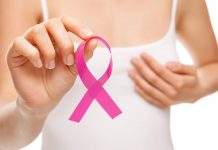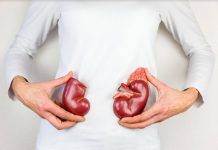 Genes! This is one of the causes of the dreadful disease breast cancer.
Genes! This is one of the causes of the dreadful disease breast cancer.
You will find good information on how genes are responsible for mutations and herewith the causing the disease.
This is for your information that BRCA1 is the breast cancer gene 1 and BRCA2 is the breast cancer gene 2. BRCA1, stands for Breast Cancer gene one, and BRCA2, or Breast Cancer gene two.
These are two tumor suppressor genes that, when functioning normally, help repair damage to DNA.
Researchers discovered that women who carry mutations of BRCA1 or BRCA2 are at higher risk of developing both ovarian and breast cancer rather than women who do not have these genetic mutations. 5% of all breast cancer cases are comprised of women with BRCA1 mutations.
You better know this! Almost 20% of women who carry BRCA1 mutations will develop this disease by age forty, age fifty-51%, and age sixty-87%. Abnormal BRCA1 and BRCA2 genes may account for up to 10% of all breast cancers.
Who should consider genetic testing?
Only women whose family histories place them at high risk of developing breast or ovarian cancers are eligible for genetic testing BRCA1 and BRCA2.
Any woman considering genetic testing should discuss the process with a physician, nurse, or genetic counselor before proceeding with the testing. This will let her know whether she is eligible for testing or not. Both men and women may inherit and pass on BRCA1 or BRCA2 mutations.
To perform the test, only a blood sample is required. As the procedure is very complicated results may take several weeks or even months to process. While the results of the test may be informative, the test also has limitations.
Please note that finding an altered BRCA1 or BRCA2 gene will not indicate if or when breast cancer will develop. However, the need for more careful and frequent monitoring by your medical provider would indicate knowing this information.
Women who are diagnosed with this disease, an abnormal BRCA1 or BRCA2 gene often have a family history of breast cancer, ovarian cancer or both. But it’s also important to remember that most women with this disease have no family history of the disease.
Identifying BRCA1 and BRCA2 has led to new techniques for lowering the risk for the disease, for lowering, detecting and treating breast cancer.
Mutations! There have to be a number of mistakes in a cell’s genetic code before it become cancerous. Doctors call these mistakes ‘mutations’. Most of these gene mutations develop through out life.
Reason may be because of a mistake when a cell is copying its genetic code before it divides into two new cells or because of cancer causing substances. You must note that most of these abnormal cells die or are killed off by your immune system.
This is the reason why cancer is generally more common as we get older; fact is it usually takes many years to gather enough genetic mistakes
So now you know what genetic mutations are and how they account our general health. So if your family has a breast cancer history it’s suggested to consult your















